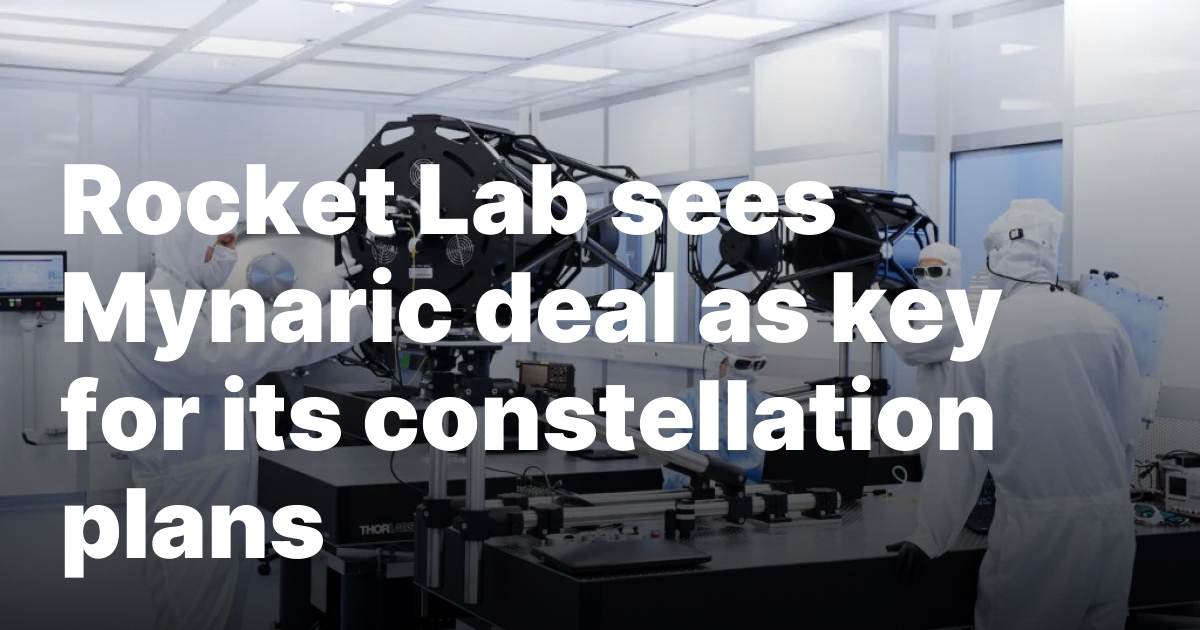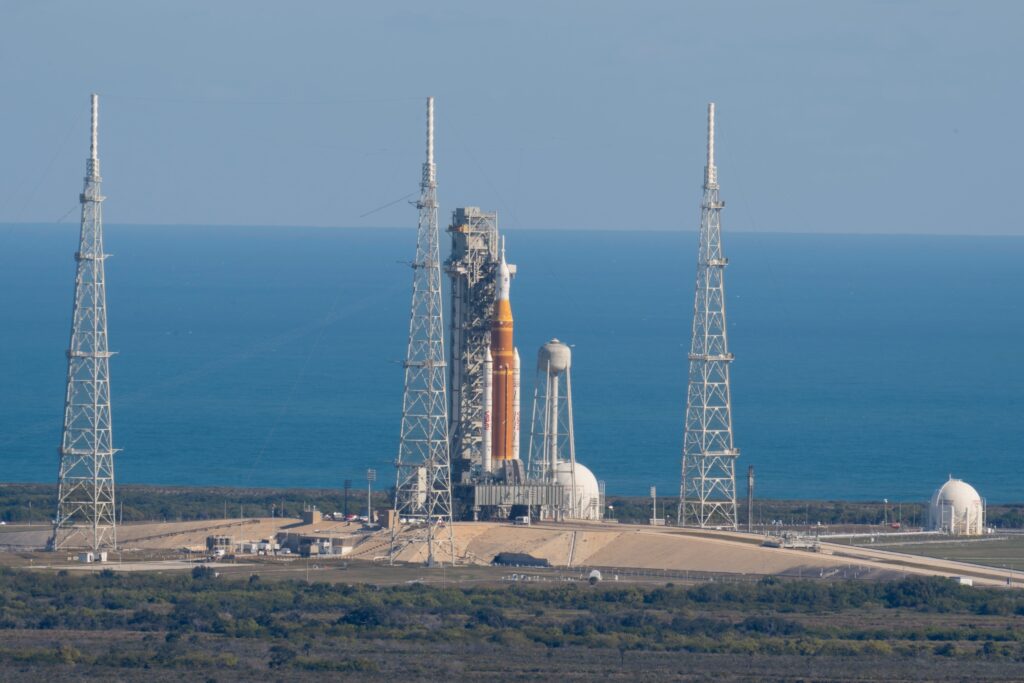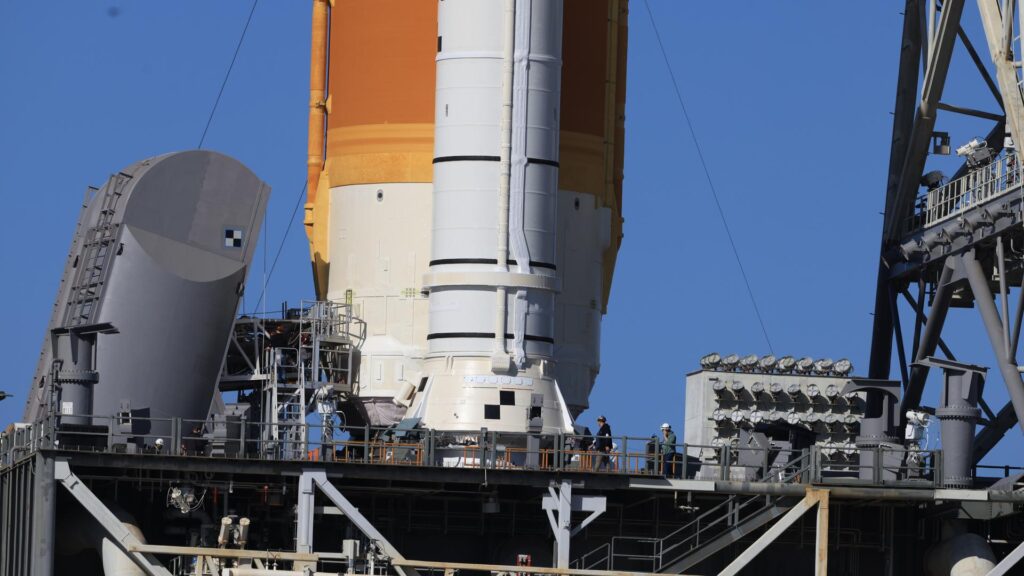Now Reading: Rocket Lab sees Mynaric deal as key for its constellation plans
-
01
Rocket Lab sees Mynaric deal as key for its constellation plans
Rocket Lab sees Mynaric deal as key for its constellation plans

WASHINGTON — Rocket Lab says its planned acquisition of a German optical communications supplier is key to its plans for both bidding on large constellations and eventually developing its own.
In a May 8 earnings call to discuss the company’s first quarter financial results, Rocket Lab executives said work to close its latest deal, the acquisition of optical communications terminal supplier Mynaric, was “progressing well” towards closing it later this year.
Rocket Lab announced March 11 its agreement to acquire Mynaric for an initial $75 million plus up to $75 million in additional payments tied to revenue targets. The deal depends on Mynaric completing a restructuring process under German law that started in February and is ongoing.
“There’s a couple regulatory processes that you’ve got to get there, but the first is to get through the bankruptcy process,” Adam Spice, chief financial officer of Rocket Lab, said of Mynaric. The timing of resolving those regulatory processes is uncertain, he said, “but everything seems to be on track.”
Mynaric ran into financial problems that triggered the restructuring because of problems producing its laser terminals, which Rocket Lab believes it can correct. “The biggest issue is just production, and that’s an area where we’re very, very strong in,” said Peter Beck, chief executive of Rocket Lab.
The acquisition, he noted, would give Rocket Lab its first presence in Europe. “We’ve been thinking about how we get into Europe for quite some time,” he said. Winning orders from European government agencies is difficult for companies outside Europe. “It’s an exciting [total addressable market] expansion opportunity for us because it’s typically very, very difficult to get involved with these larger European programs unless you have a footprint there.”
Rocket Lab plans to continue offering Mynaric terminals as a merchant supplier to other companies, which Beck noted is the same approach to other space system technologies, from solar arrays to reaction wheels, that it as obtained through acquisitions. “We’re happy to supply to everybody in the world.”
The Mynaric technology, though, is also an essential part of Rocket Lab’s vertical integration efforts, as it acquires key suppliers to ensure what he described as a “reliable, scaled supply of components for our own aspirations.”
“A key piece of any large constellation is the ability to communicate between spacecraft with high speed and secure connections,” he said.
Those constellations could be for other customers. “We’re pursuing several large government and commercial contracts that could see us building entire constellations of satellites,” Spice said. “These are industry scaling and shaping constellations that could tap our full space systems value chain and realize significant value that reshapes our business.”
However, Rocket Lab has expressed interest in developing its own constellation, but has provided few details about what services that constellation would offer or when the company would deploy it.
Beck said in the call that Rocket Lab was building “towards a future as a constellation owner and operator,” noting that “every milestone and every mission brings us closer to that more lucrative piece of the space value chain.” But, as in past calls and interviews, he did not elaborate on the company’s plans to develop its own constellation.
Outside analysts are still trying to understand Rocket Lab’s ambitions. “It’s difficult,” said Andrew Chanin, co-founder and chief executive of ProcureAM, which runs the Procure Space exchange-traded fund whose holdings include Rocket Lab. “They might have a lot of the skill sets and capabilities to be able to get their satellites up into space and be able to manage and operate them, but it is a crowded field.”
He said in an interview after the earnings call that it might make sense for Rocket Lab to wait until its Neutron rocket is in service and for the company to break even before considering the major investment a satellite constellation would require.
If Rocket Lab did pursue a constellation, particularly one focused on broadband communications of some kind, it would be far behind SpaceX’s Starlink and Amazon’s Project Kuiper, among others, but Chanin said it might still be possible for the company to find a lucrative niche.
“We’ve seen a lot more resistance from foreign companies, and even some domestic companies, from wanting to either work with SpaceX or to tie their whole company to SpaceX and Elon Musk,” he said. Those prospective customers “could look more favorably towards a Rocket Lab, which seems to be a little bit more neutral.”
Mynaric is unlikely to be the last deal Rocket Lab pursues to build out its capabilities for offering or operating constellations. Spice said the company had “half a dozen deals in the pipeline” to further its vertical integration.
Asked later in the call if Rocket Lab would consider acquiring a satellite operator, Beck would not rule it out. “We look at everything,” he said. “We’ll look across a range of things including much more needle-moving opportunities.”
Stay Informed With the Latest & Most Important News
Previous Post
Next Post
Previous Post
Next Post
-
 01Two Black Holes Observed Circling Each Other for the First Time
01Two Black Holes Observed Circling Each Other for the First Time -
 02From Polymerization-Enabled Folding and Assembly to Chemical Evolution: Key Processes for Emergence of Functional Polymers in the Origin of Life
02From Polymerization-Enabled Folding and Assembly to Chemical Evolution: Key Processes for Emergence of Functional Polymers in the Origin of Life -
 03Astronomy 101: From the Sun and Moon to Wormholes and Warp Drive, Key Theories, Discoveries, and Facts about the Universe (The Adams 101 Series)
03Astronomy 101: From the Sun and Moon to Wormholes and Warp Drive, Key Theories, Discoveries, and Facts about the Universe (The Adams 101 Series) -
 04Φsat-2 begins science phase for AI Earth images
04Φsat-2 begins science phase for AI Earth images -
 05Hurricane forecasters are losing 3 key satellites ahead of peak storm season − a meteorologist explains why it matters
05Hurricane forecasters are losing 3 key satellites ahead of peak storm season − a meteorologist explains why it matters -
 06Thermodynamic Constraints On The Citric Acid Cycle And Related Reactions In Ocean World Interiors
06Thermodynamic Constraints On The Citric Acid Cycle And Related Reactions In Ocean World Interiors -
 07Binary star systems are complex astronomical objects − a new AI approach could pin down their properties quickly
07Binary star systems are complex astronomical objects − a new AI approach could pin down their properties quickly
















